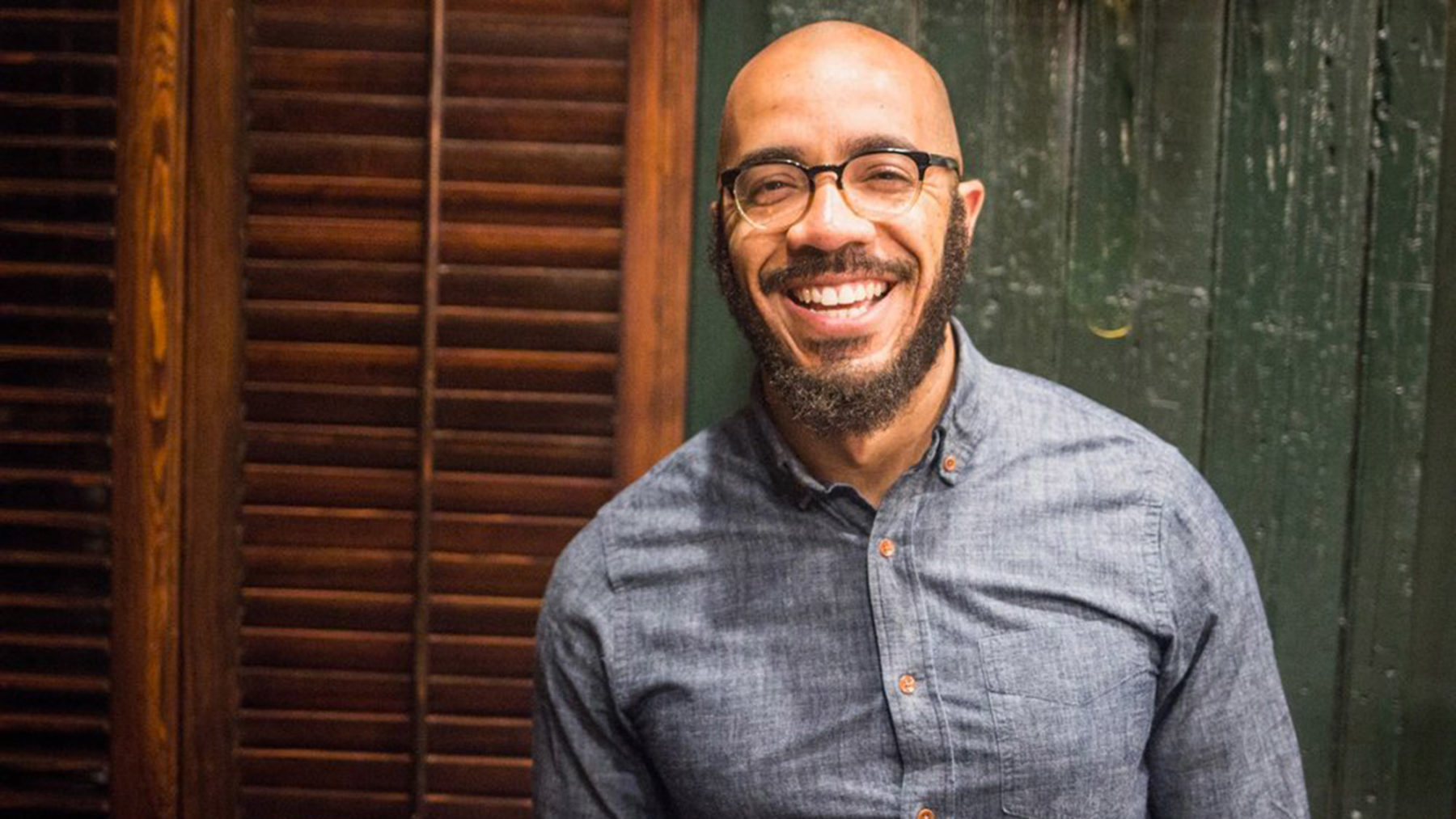
Photo courtesy of Clint Smith
Judging a book
“Fiction exists as an exercise in radical empathy.”
When Clint Smith works on something — his nonfiction and poetry, the podcasts “Pod Save the People” and “Justice in America,” his articles in The New Yorker, The Atlantic, and The New York Times Magazine, or his Ted Talks — he forges a deep connection with his subject.
That’s why, while working on a doctoral dissertation about juveniles facing life sentences without the possibility of parole, Smith decided to volunteer to teach literature and writing at the central detention facility in his adopted home of Washington D.C.
“I didn’t want to just write about incarceration without spending time with incarcerated people,” Smith said. “That was, and continues to be, very important to me, and it’s probably the most important thing that I’ve done since I’ve been in graduate school. I think I would have had a very different experience if I wasn’t working in prisons and jails for these past several years. It reminded me, and constantly reminds me, what’s at stake, and why this work is so important and so urgent.”
Smith does this work through an organization called Free Minds Book Club, which provides services for inmates, including the reading and writing sessions Smith leads.
“We go around and discuss the themes that the men find and how they’re relevant to the things that are happening in the world today, how they’re relevant to our own lives.”
Smith said that literature can be so much more than just an escape for prisoners. It can lead to seeing their lives and circumstances in ways that they’d never otherwise consider, and to connecting and empathizing with people they’d never otherwise meet.
The group recently read the Vietnam War novel “The Things They Carried,” and Smith was amazed at the connections the men made between war and prison: “In terms of what it means to be sent somewhere that is away from home, in terms of what it means to return to a place that you have been gone from for a long time, and the world has changed while you’ve been gone. [I had] a really fascinating experience with this group of guys who were wrestling with a lot of the same questions that soldiers and veterans of war are wrestling with as well.”
It’s this experience that Smith says best exemplifies the radical empathy that literature can elicit, and it’s that kind of connection that he’s trying to elicit when he works with and writes about the incarcerated for his dissertation.
Smith, the son of a doctor and a lawyer, and raised in New Orleans, said about his time with the men in the facility: “What working in a prison and spending time in a prison does is remind me that, but for the arbitrary nature of birth and circumstance, it very easily could have been me inside of that prison.”
He went on to explain that graduate school “is a place where your feet can start to levitate off the ground, and things become more abstract. They become more of an intellectual exercise than tactile and urgent. And what I know about myself is that I learn best when I am interfacing with people who remind me of the urgency of the work, who remind me that their lives are at stake, and who remind me why I went to graduate school, which was to gain an intellectual tool kit with which to work on behalf of the communities that I love and that I came from.”
This story is part of the To Serve Better series, exploring connections between Harvard and neighborhoods across the United States.




